English Learning Tips for Beginners: 20 English Movies and Books to Read
Looking for the best learning resources to improve English as a beginner? Discover simple movies, books, and tools to learn English faster with fun and confidence.
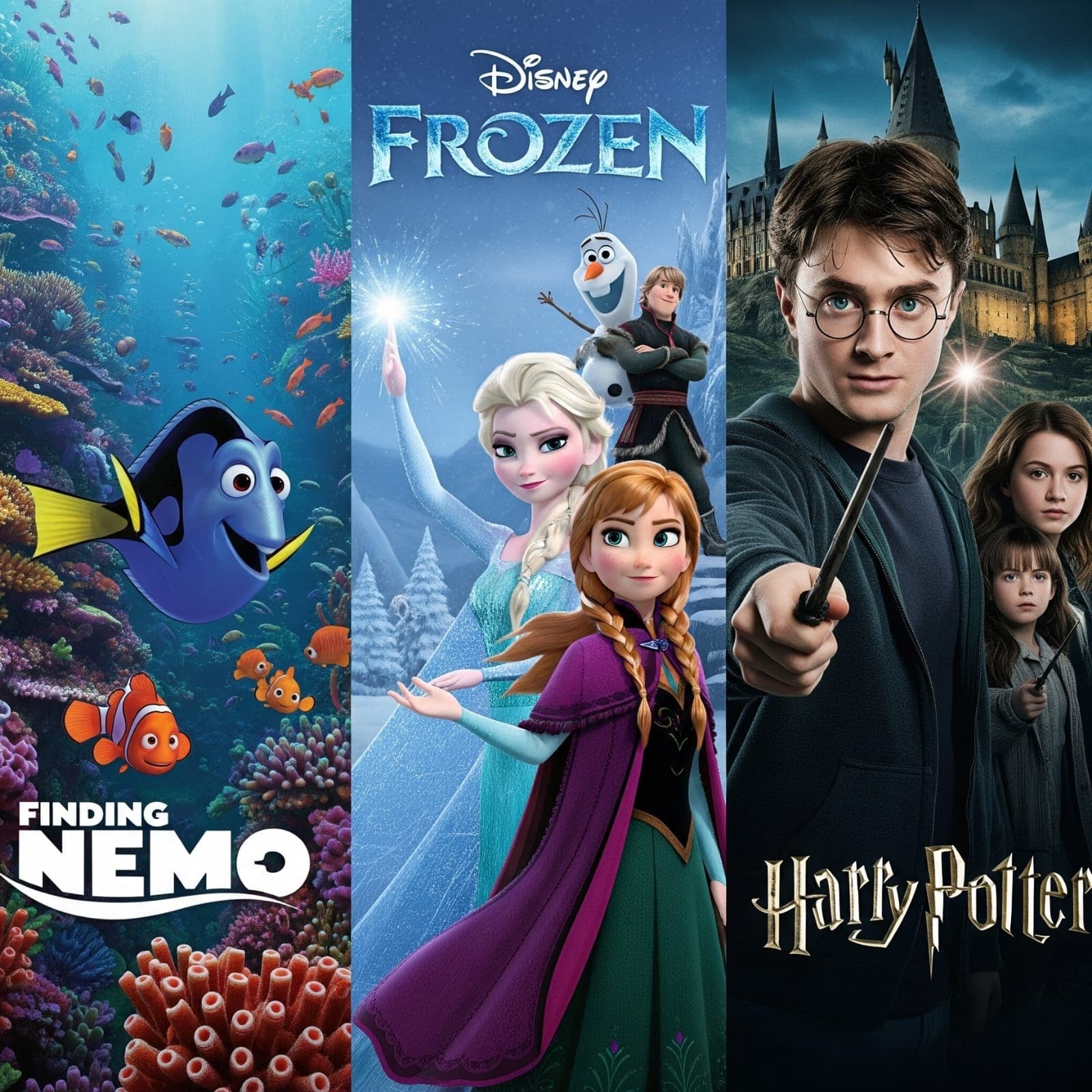
English Learning Through Movies & Books
Introduction
Learning English doesn’t have to be difficult or dull. Forget thick grammar books and long lists of rules — the secret is to make English part of your everyday life.
One of the best learning resources for beginners is right in front of you — movies and books. They teach you natural vocabulary, expressions, and pronunciation. And when combined with real speaking practice, you can see improvement in weeks, not years.
Let’s explore how you can master English for beginners using movies, books, and smart habits.
Learn English the Smart Way
Learning English can feel overwhelming — especially when grammar rules, accents, and vocabulary seem endless. But here’s a secret: you can start learning naturally, just like a native speaker — through movies and books.
This guide will show you the best learning resources, simple daily tips, and practical ways to build your confidence in English even if you’re starting from zero.
Why “English for Beginners” Should Start with Fun Learning
Textbooks teach you rules. But movies and books teach you how English actually sounds and feels.
You’ll pick up:
Real conversations
Slang and tone
Emotions and expressions
Cultural context
That’s why the most effective learners use fun tools not just grammar drills.
Why Movies and Books Work
Movies and books offer context. You don’t just memorize words — you feel how they’re used.
Movies: Improve listening, accent recognition, and real-life conversation flow.
Books: Strengthen grammar, reading comprehension, and imagination.
Result: A balanced English foundation — both input (listening, reading) and output (speaking, writing)
The Power of Movies in Learning English
Movies bring English to life. You don’t just hear words — you see emotions, tone, and culture.
Here’s why they’re powerful:
They build listening comprehension
They train your ear for accents
They show natural sentence patterns
Clapingo Pro Tip: Start with subtitles ON (in English), then turn them off as you improve.
Choosing the Right Movies for Beginners
Not all movies are beginner-friendly. Skip complex dramas or heavy accents at first. Start with clear, simple dialogues.
🎬 Great Choices:
Finding Nemo – Fun and easy to follow.
The Lion King – Clear dialogues with strong emotions.
Home Alone – Everyday conversations.
Frozen – Catchy songs and short phrases.
Harry Potter and the Sorcerer’s Stone – Simple magic world English.
Clapingo Tip: Watch one movie multiple times. You’ll notice new words each time.
How Books Build Your English Vocabulary
Books help you think in English. They expose you to grammar in action, not theory.
Choose:
Short stories if you’re a beginner
Young adult novels for simple yet emotional language
Biographies or non-fiction once you’re confident
Best Books to Start Your English Journey
Reading is the easiest way to grow vocabulary. But don’t start with Shakespeare — start with modern, short, and emotionally engaging stories.
📚 Recommended Books:
Charlotte’s Web – Short, emotional, and easy to follow.
The Little Prince – Beautiful lessons in simple English.
Diary of a Wimpy Kid – Perfect for casual English.
Matilda – Fun, witty, and full of everyday expressions.
The Alchemist – Inspirational and easy to understand.
Clapingo Tip: Read aloud. It boosts confidence and pronunciation.
Clapingo: The Missing Piece
Movies and books build understanding. But to speak fluently, you need real conversation practice.
That’s where Clapingo helps:
Daily 1-on-1 sessions with English experts.
Customized lessons for beginners.
Personalized feedback to correct mistakes.
Comfort of learning from home.
💡 Clapingo + Movies + Books = Perfect English Trio.
30 Must-Watch English Movies and Must-Read Books
Here’s a balanced mix of 30 recommendations for all levels:
🎥 Top 15 English Movies for Beginners
The Intern
Forrest Gump
Finding Nemo
The Pursuit of Happyness
Notting Hill
The Devil Wears Prada
The Social Network
Cast Away
Eat Pray Love
Up
Julie & Julia
The King’s Speech
The Holiday
Dead Poets Society
Freedom Writers
📖 Top 15 English Books for Beginners
The Alchemist – Paulo Coelho
Charlotte’s Web – E.B. White
The Curious Incident of the Dog in the Night-Time – Mark Haddon
The Secret – Rhonda Byrne
The Old Man and the Sea – Ernest Hemingway
Harry Potter and the Philosopher’s Stone – J.K. Rowling
The Diary of a Young Girl – Anne Frank
Wonder – R.J. Palacio
The Giver – Lois Lowry
Tuesdays with Morrie – Mitch Albom
The Little Prince – Antoine de Saint-Exupéry
Atomic Habits – James Clear
You Can Win – Shiv Khera
Animal Farm – George Orwell
The Kite Runner – Khaled Hosseini
Clapingo Tip: Watch the movie version after reading the book — it reinforces comprehension and builds confidence.
How to Use Subtitles Smartly
Start with English subtitles to connect sounds with words.
After 2–3 weeks, switch to no subtitles.
Rewatch scenes and repeat dialogues aloud.
Goal: Train your ears and mouth together.
Learn from Dialogues, Not Just Words
Repeat short movie dialogues aloud. You’ll train your mouth, tone, and rhythm.
Example:
“Life is like a box of chocolates. You never know what you’re gonna get.” — Forrest Gump
Use them as mini speaking drills!
Listening Practice Beyond Movies
Try:
Podcasts for beginners (“The English We Speak” by BBC)
Audiobooks (like The Alchemist)
YouTube channels with subtitle features
Reading Hack: Shadow Reading
This is an amazing beginner trick!
Play an audiobook while reading the same text.
Speak along with the narrator.
Copy pronunciation and rhythm.
It feels silly at first but works wonders for fluency.
The “Shadowing” Technique - Copy Like a Pro
The shadowing technique is a favorite among language experts. It’s simple but incredibly effective.
Here’s how it works:
Listen to a sentence or dialogue.
Repeat it immediately, trying to match the speed and rhythm.
Don’t pause to understand every word — just follow the sound.
Over time, this improves your:
Accent
Rhythm
Sentence flow
Listening accuracy
Try this daily:
Use YouTube videos or movie scenes.
Example: Watch a 1-minute TED Talk and repeat the speaker’s words in real-time.
Clapingo tutors often use shadowing to help learners sound smoother, faster, and more natural in just 2–3 sessions.
Imitate Native Speakers — The Secret to Sounding Fluent
Ever noticed how actors master accents so quickly? They imitate — not memorize.
You can do the same. Watch a 30-second English clip and mimic every detail — tone, speed, pauses, even facial expression.
Steps:
Choose a short, emotional movie scene.
Watch it once to understand.
Replay and repeat each line out loud.
Compare your tone and pronunciation.
This “shadow imitation” sharpens listening, accent, and pronunciation naturally.
Example Scene:
Try Julia Roberts’ calm, clear tone in Eat Pray Love or Tom Hanks’ friendly rhythm in Forrest Gump.
Clapingo coaches often help you fine-tune pronunciation like a movie coach.
The Psychology of Fun Learning
When you enjoy what you learn, your brain retains words faster.
That’s why entertainment-based learning is 40% more effective than rote memorization.
Turn Learning into a Game
Learning English shouldn’t feel like punishment. The best learners treat it like play.
Here’s how to gamify your English learning:
Use flashcard apps like Quizlet to test new words.
Create small challenges like “5 new idioms today.”
Watch movies with friends and play “guess the dialogue” after.
Set rewards. e.g., “If I read one chapter daily, I’ll binge my favorite show this weekend.”
Fun Game Idea:
Play “Word Hunt” - every time you hear a new English word in a movie, pause and guess its meaning before checking.
Clapingo Tip: Join sessions on Clapingo where learners compete to describe pictures, retell stories, or improvise dialogue scenes. It’s learning + laughter!
When English becomes a game, you’ll stop procrastinating — and start improving daily.
The “One Movie - One Lesson” Strategy
Don’t rush through movies. Focus on learning from one at a time.
Example with Finding Nemo:
Learn 10 new words.
Practice 3 dialogues.
Describe one scene in English.
Repeat with every movie, steady progress guaranteed.
From Watching to Speaking: The 3-Step Rule
Movies aren’t just for entertainment — they’re your free speaking school.
Here’s the simple 3-step system to convert watching into fluency:
Watch: Understand the context and emotion.
Repeat: Mimic the dialogues aloud.
Recreate: Use the same expressions in your own sentences.
Example:
Original line: “I’ll figure it out.”
Your version: “Don’t worry, I’ll figure it out tomorrow.”
Recreating helps your brain own the phrase.
Think in English - Stop Translating
One of the biggest mistakes beginners make is translating every word from their native language to English. This slows you down and kills fluency.
Here’s what happens when you translate:
Your brain switches between two languages constantly.
You pause often, searching for the “right” word.
You lose natural tone and rhythm.
Instead, train your brain to think directly in English.
Start small:
Label objects around you in English (“table,” “chair,” “bottle”).
Narrate your day in English: “I’m making tea,” “I’m checking emails.”
Describe your emotions in English, not your native language.
Mini Exercise:
Every morning, describe one thing you see — a person, object, or event — using three English sentences. Don’t translate. Just express.
💬 Example:
❌ Thinking: “Mujhe kaam pe jana hai.”
✅ Saying: “I have to go to work.”
When your mind starts thinking in English, fluency becomes automatic.
Keep a Movie Vocabulary Journal
Movies and books introduce thousands of useful phrases — but you’ll forget them unless you record them.
🗒️ Start your own “English Journal.”
Each time you watch or read something, note:
The new word
Its meaning
A sample sentence
Example:
Word: “Resilient”
Meaning: Able to recover quickly
Sentence: “She stayed resilient despite challenges.”
Add visuals or doodles — it makes memory stronger.
Clapingo learners often discuss journal entries in their sessions tutors help correct sentences and teach real-world usage.
Keep a “Word Notebook”
Create a small notebook (digital or paper).
Write down:
The new word.
Meaning in English.
Example sentence.
Scene or page where you found it.
Reviewing weekly will double your vocabulary retention.
Build a Reading Habit (Even If You Hate Reading)
Reading doesn’t mean hours of sitting.
Try:
5 pages during breakfast.
Short stories on the bus.
Comic strips before bed.
Make reading part of your routine not a chore.
How Books Shape Thinking in English
Books do more than improve vocabulary — they reshape your inner voice.
When you read, your brain absorbs sentence patterns, rhythm, and phrasing. Over time, you start thinking in English naturally.
For example:
After reading The Alchemist, you might start forming thoughts like:
“Every dream begins with a step.”
That’s your inner dialogue shifting into English, the ultimate goal!
Clapingo Tip: Read aloud for 10 minutes daily. It strengthens both thought and speech.
Learn Culture Through Movies
English isn’t just words — it’s tone, humor, and expressions.
Movies like Notting Hill or The Intern show how people talk politely, apologize, or make small talk. This helps you understand cultural context, not just grammar.
Don’t Fear Children’s Content
Many adults think children’s books or cartoons are too simple. Big mistake!
Why they work:
Clear pronunciation.
Repetitive, simple vocabulary.
Visual context that helps memory.
Shows like Peppa Pig or Bluey are excellent English for beginners tools.
Learn with Movie Quotes
Famous lines are easy to remember. For example:
“Just keep swimming.” — Finding Nemo
“Hakuna Matata.” — The Lion King
“You’re a wizard, Harry.” — Harry Potter
Repeat them aloud. You’ll improve pronunciation and confidence.
Learn Idioms from Movies
Idioms make English sound colorful and native-like.
Movies are full of them!
Examples:
“Break a leg!” → Good luck
“Piece of cake” → Very easy
“Spill the beans” → Reveal a secret
Watch Friends, The Office, or Modern Family — they’re treasure chests of idioms.
Clapingo Challenge: Write 3 idioms a week in your journal and use them in your next Clapingo session.
Grammar Through Stories
Grammar doesn’t need to be boring. You can learn it by noticing it in stories.
For instance:
While reading The Little Prince, you’ll naturally see how past tense and dialogue tags work.
Example:
“He said he loved sunsets.” — shows reported speech in context.
Clapingo Tip: Whenever you see a new grammar form, note it down and copy one sentence into your notebook.
Clapingo tutors often explain grammar using your favorite movie lines, making learning memorable.
Write Movie or Book Reviews
Writing helps you organize thoughts in English. After finishing a movie or book, write a short review.
Example:
“I watched The Intern. It was heartwarming and funny. I learned new words like ‘retirement’ and ‘mentorship.’”
Why this helps:
Strengthens sentence structure
Improves clarity
Builds writing confidence
Share your reviews online or during Clapingo sessions for live feedback.
Listening vs Reading: Which Should You Start With?
There’s no single rule. But for beginners:
Start with listening (movies, audiobooks) to get used to sounds.
Add reading to strengthen spelling and structure.
Combine both for complete learning.
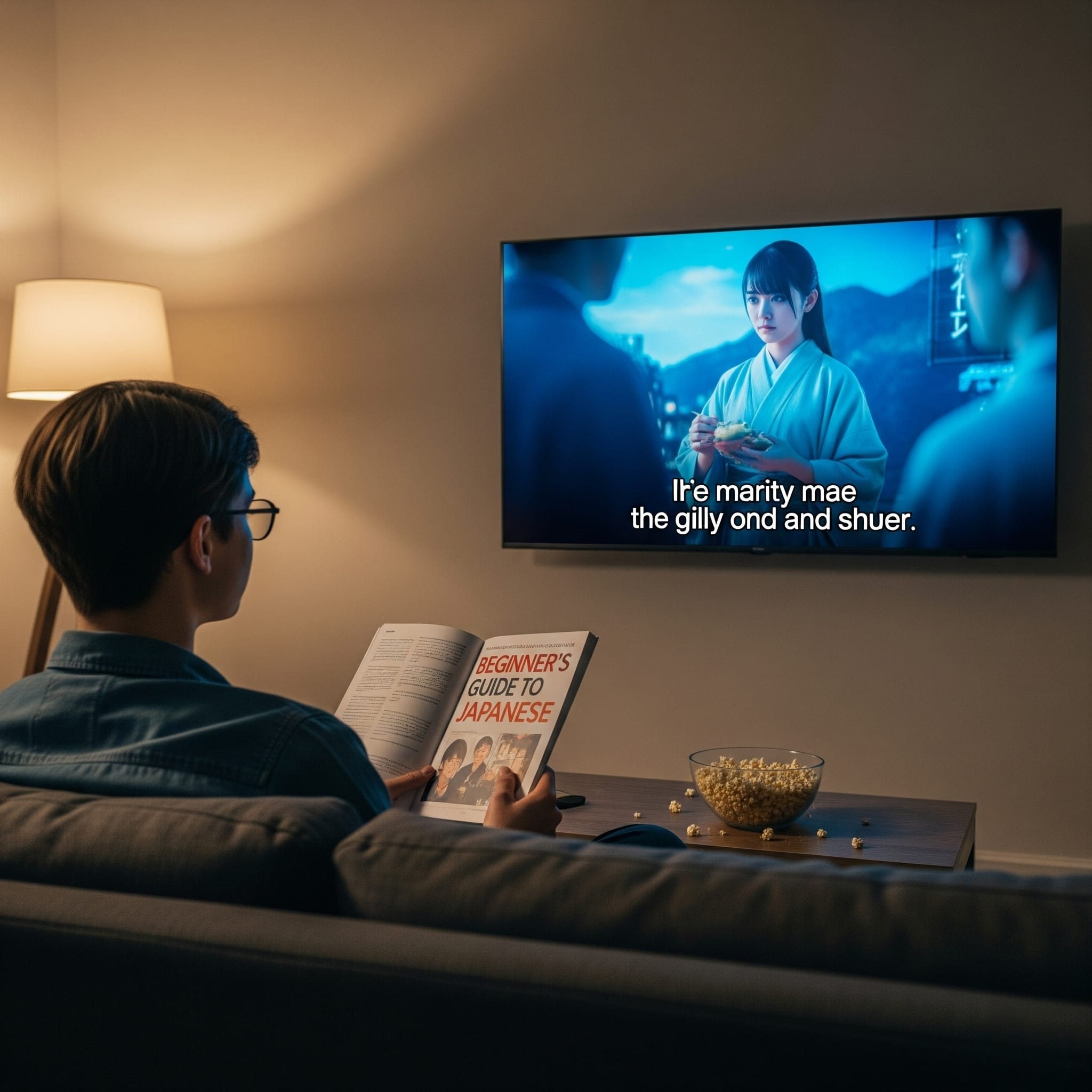
Watch Movies For Language Learning
Weekend English Plan
Here’s a weekend activity idea:
Watch a short movie or episode.
Read a few pages of a related book.
Join a Clapingo session to discuss what you watched.
Result: Listening + Reading + Speaking — all covered!
Daily Routine Chart
| Time | Activity | Duration | Focus |
|---|---|---|---|
| Morning | Read 2–3 pages of a simple book | 15 mins | Vocabulary |
| Afternoon | Review your word notebook | 10 mins | Retention |
| Evening | Watch part of a movie with subtitles | 20 mins | Listening |
| Night | Speak or summarize in English | 15 mins | Speaking |
| Weekend | Write a short summary of your book/movie | 30 mins | Writing |
Consistency beats intensity.
The Golden Rule - Consistency Beats Intensity
It’s better to study 15 minutes daily than to cram 3 hours on weekends.
Your brain learns through repetition, not pressure.
The 1% Rule:
Improve just 1% every day — it compounds fast.
Example Routine:
Monday: Watch 10 minutes of a movie
Tuesday: Read one story
Wednesday: Speak for 5 minutes aloud
Thursday: Journal your new words
Friday: Join a Clapingo call
Weekend: Review and relax
Over months, small efforts will add up to big transformation.
Overcome Fear of Speaking
Even after understanding English, many hesitate to speak. Why? Fear of judgment.
The Clapingo Solution: Speak in a safe space with a Clapingo tutor who listens patiently and corrects gently.
Confidence grows when you use English daily.
How to Pick Your First Book
Start with:
Simple language.
Short chapters.
Topics you enjoy (sports, mystery, travel).
If you love what you read, you’ll naturally keep learning.
Check out: Top 25 Best Spoken English Books for Beginners To Advanced Learners
Read Short English Articles Online
Books are great — but articles are quicker and reflect modern English.
Start with websites like:
News in Levels – simplified global news
BBC Learning English – short, clear reads
The Guardian Easy – real news with everyday language
Spend 10 minutes a day reading one article aloud.
🎯 Focus on:
How sentences are structured
Which phrases sound natural
How ideas connect
Over time, your comprehension and vocabulary will skyrocket.
The “Repeat & Review” Formula
After finishing a movie or book:
Review vocabulary.
Retell the story in your words.
Watch/read again after 2 weeks.
You’ll be shocked at how much more you understand the second time.
The Magic of Music
Songs are powerful tools for English beginners.
Try singing along to slow songs like Perfect by Ed Sheeran or Count on Me by Bruno Mars.
It improves:
Pronunciation
Rhythm
Listening speed
Learn from Real-Life Conversations
Watch interviews or talk shows (The Ellen Show, Graham Norton Show).
These teach how people use humor, gestures, and idioms, all essential for real conversations.
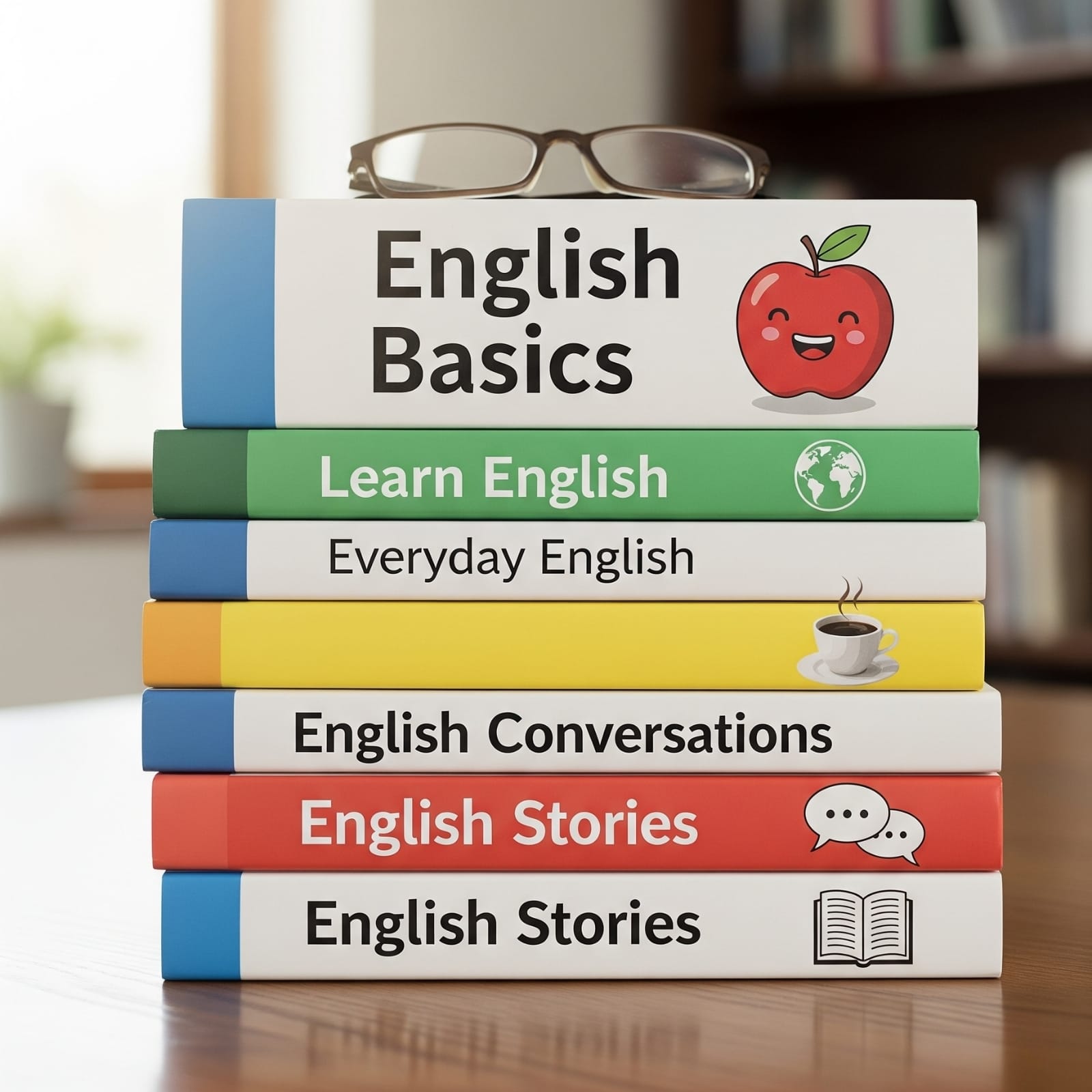
English Learning Tips
Create Your English Corner
Set up a small learning zone at home:
Your books
Sticky notes with words
A list of your favorite movie quotes
Visual reminders keep motivation alive.
Join an English Book Club
Online book clubs or Clapingo sessions help you:
Discuss books.
Hear different accents.
Learn to express opinions.
Talking about stories makes English practical, not theoretical.
Learn with Friends — The English Movie Club Method
Learning alone can be hard. But when you learn with friends, motivation triples.
Start a Movie or Book Club:
Pick one English movie or short story every week.
Meet online or offline to discuss what you learned.
Speak only in English during the discussion.
Topics can include:
What you liked most about the movie
Which new words you learned
Which dialogues were powerful
You can also do “Character Challenges” where each person speaks as a movie character for 2 minutes.
Clapingo Fluency Challenge
Want to test your progress? Try the 7-Day ClapingoFluency Challenge.
Here’s how it works:
Watch 1 English clip daily (Clapingo provides curated scenes).
Speak about it for 2 minutes in your session.
Get personalized feedback from your tutor.
🎯 You’ll learn:
Accent accuracy
Sentence fluency
Real-time confidence
Within a week, you’ll notice a huge shift in your speech comfort.
Track Your Progress
Make a simple progress tracker:
✅ Movies watched
✅ Books finished
✅ Words learned
✅ Clapingo sessions done
Small wins = big motivation.
Reward Yourself
Learning a language is hard work! Celebrate milestones.
Finished your first English book? Treat yourself. Watched a full movie without subtitles? That’s progress worth celebrating.
Celebrate Small Wins
Fluency is a marathon, not a race. Every small step counts — and deserves recognition.
Celebrate when you:
Watch a full English movie without subtitles.
Read your first novel in English.
Speak confidently for 5 minutes without pausing.
Reward yourself - a cup of coffee, a treat, or a simple “Well done!”
Success in English is not about perfection. It’s about progress.
Each new word, each brave sentence, that’s growth.
Stay Relaxed While Learning
Tension and fear are fluency’s worst enemies. When you’re anxious, your brain freezes.
Stay calm:
Take deep breaths before speaking.
Smile, it helps your voice sound confident.
Remind yourself: “It’s okay to make mistakes.”
Even native speakers forget words sometimes!
Mindset trick:
Instead of saying “I’m bad at English,” say “I’m improving my English every day.”
On Clapingo, tutors create relaxed conversations - no judgments, only encouragement.
Did You Know?
📊 Studies show watching English media improves comprehension 40% faster than textbooks.
📚 Reading just 15 minutes a day can add 1,000+ new words per year.
🎧 Repeating dialogues helps you sound more natural in conversation.
Tips & Tricks
| Do's | Don'ts |
✅ Watch short sitcoms (Friends, Modern Family) | ❌ Translate word by word |
✅ Read 15 minutes daily | ❌ Start with tough novels |
✅ Use dictionary apps | ❌ Feel guilty about mistakes |
✅ Practice on Clapingo | ❌ Skip daily practice |
✅ Highlight new words | ❌ Avoid speaking practice |
Common Mistakes Beginners Make
Focusing only on grammar.
Ignoring pronunciation.
Watching too many YouTube “rules” videos but never practicing.
Trying to sound perfect.
Remember: Communication > Perfection.
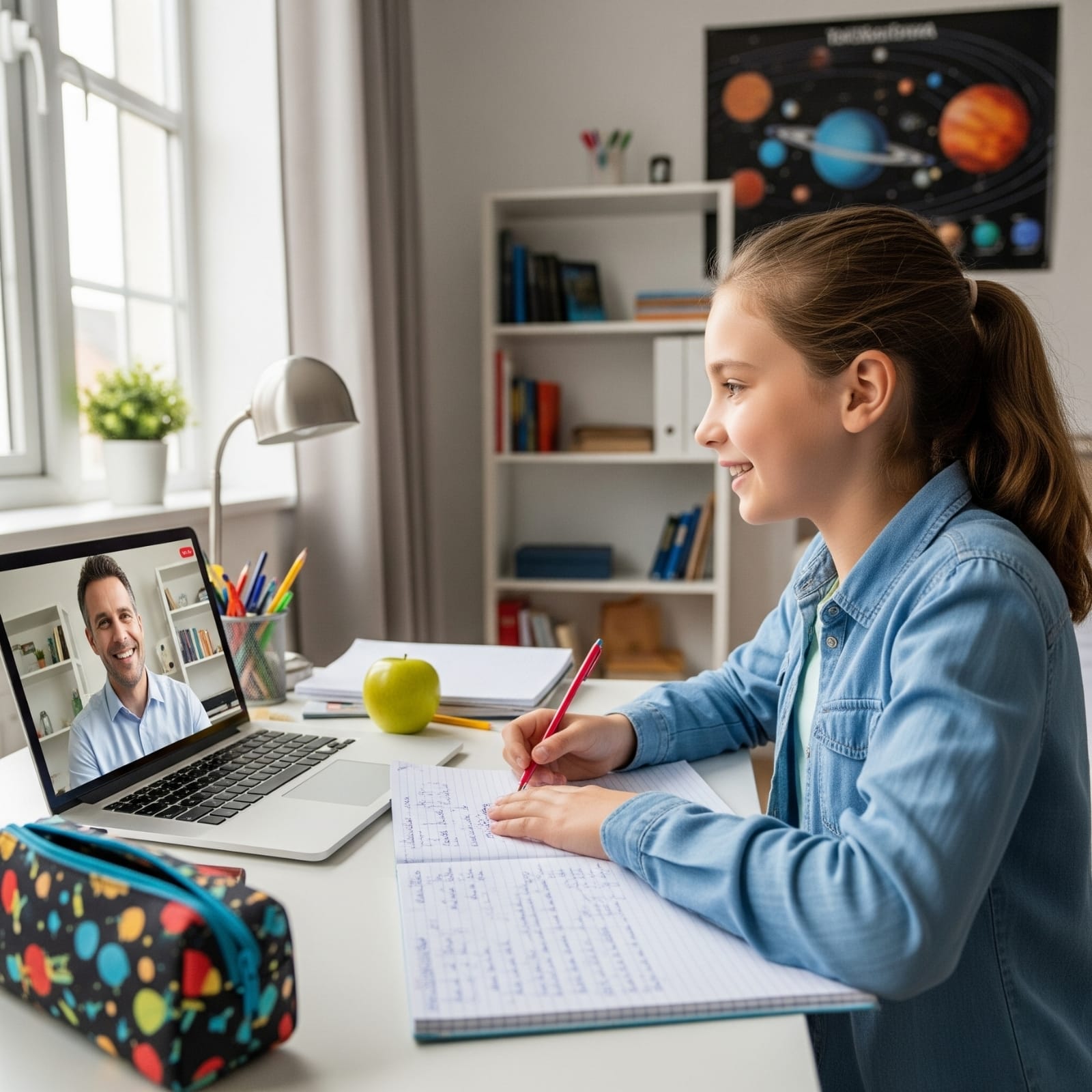
Practice With Clapingo Experts
Practice Real Conversations - Not Just Theory
Watching and reading help you understand English. But to speak fluently, you must use it.
Start practicing real conversations every week — even 10 minutes helps.
Where to Start:
Talk to friends in English
Record yourself summarizing a movie
Book a Clapingo session to get real-time feedback
Clapingo offers one-on-one sessions with Indian tutors who make you comfortable, correct gently, and focus on real-life English, not textbook grammar.
Remember: You don’t become fluent by studying. You become fluent by speaking.
Also check out: Learn Quickly: 100 Short Conversational English Tips for Beginners
Learn English with Music Lyrics
Listening to songs helps pronunciation and rhythm.
Try singing along with:
“Count on Me” – Bruno Mars
“Perfect” – Ed Sheeran
“Viva La Vida” – Coldplay
Create a Simple Daily English Routine
Time | Activity | Duration |
|---|---|---|
Morning | Read 1 page of a book | 10 mins |
Afternoon | Watch 1 English video | 15 mins |
Evening | Note 5 new words | 5 mins |
Night | Speak aloud 3 sentences | 5 mins |
Small consistency = Big progress!
DID YOU KNOW?
The average English learner needs about 500–700 hours of exposure to reach fluency.
That’s just 2 hours a day for a year — through movies, books, and conversation!
Clapingo’s Smart Practice Tip
On Clapingo, you can practice conversations inspired by real movie scenes.
✅ Roleplay as a movie character
✅ Get feedback from an expert tutor
✅ Learn to sound confident — not robotic
🎯 Book your first Clapingo session today and speak like your favorite movie hero!
Motivation Corner
Some days you’ll feel stuck. Don’t quit. Learning English is like going to the gym — consistency builds results.
Keep your “why” clear — better career, confidence, or connection.
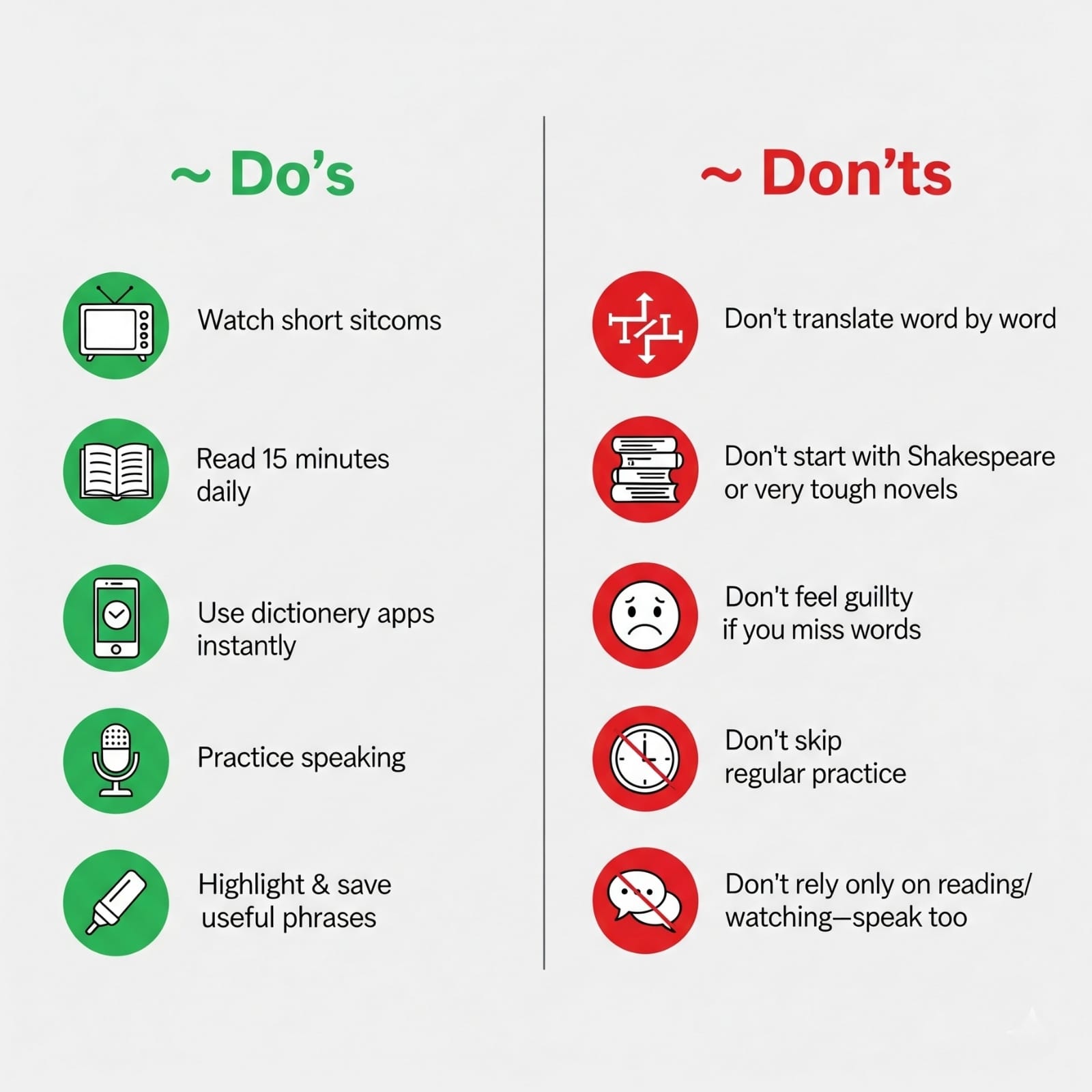
English Tips for Beginners
Tips and Tricks Recap
✅ Watch 1 English clip daily
✅ Read 2 pages of an English book
✅ Note 5 new words
✅ Practice aloud for 10 minutes
✅ Join a Clapingo session weekly
Read Also: How to Improve English Speaking at Home: 7 Fluency Tips for Beginners
Conclusion
Movies and books make English learning fun and real. When combined with regular speaking practice, they transform your skills completely.
Here’s your success formula:
🎬 Watch → 📖 Read → 🗣️ Speak → 🔁 Repeat.
And remember, Clapingo is here to guide you step-by-step — from your first hesitant sentence to confident conversations.
Start today. The best time to learn English was yesterday. The next best time? Now.
Final Thoughts
English for beginners doesn’t need to feel like homework. Start small, stay consistent, and use the best learning resources — movies, books, and conversation.
You’ll soon find yourself thinking, laughing, and dreaming in English.
Comments
Your comment has been submitted